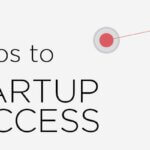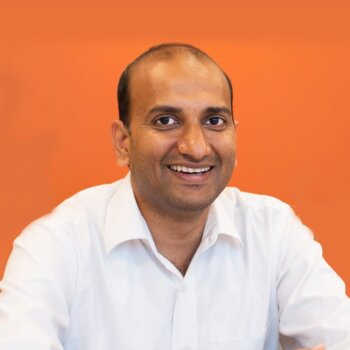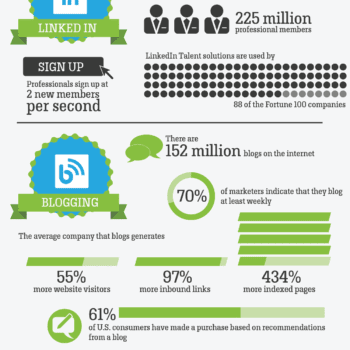Connecting marginalised women can help grow GDP! Find out more…
What’s your story?
I am the founder of Daughters Of Tomorrow (DOT), a registered charity in Singapore whose mission is to facilitate livelihood opportunities for underprivileged women, and support them in building financially independent and resilient families.
Our beneficiaries are women aged 20 to 60 who are from low-income families ($200 to $500 per capita per month), mostly living in government subsidized rental flats, and facing multiple stressors in their families. They currently face limitations on access to gainful employment due to child-rearing responsibilities, lack of flexibility in employment practices and lack of focused training and skills-enhancement. The children in these families are denied a level playing field in education and social exposure, exacerbating the phenomenon of social exclusion that comes with the widening income gap in Singapore as the country’s economy progresses.
DOT comes in with confidence programmes and access to training and employment for our women. We also look into innovative livelihoods and micro-entrepreneurship opportunities for women to make a living outside of the traditional economy and formal employment.
What excites you most about your industry?
That there is so much untapped potential in the pool of women from the lowest-income segments of our societies who are currently underprivileged, under-utilized, under-served.
Once enabled with the right skills and opportunities, the extent that they could be contributing to businesses and economies would be really significant!
What’s your connection to Asia?
My work was prompted by a trip to India in 2007 and through witnessing the extreme of what happens when women are marginalized – female infanticide, sex trafficking, child marriages, etc.
Having travelled to various cities in India, as well as cities like Shanghai, Hong Kong, Bangkok, Chiang Mai, Yangon, Phnom Penh for both business and community work, I have seen a wide spectrum of women in different places at different stages of social and economic development – some of them are so empowered yet in some places they are entirely neglected.
Personally, my dad is from China and my mom is from Malaysia. I am a first-generation locally-born Singaporean, and I feel connected to Chinese roots.
Favourite city in Asia for business and why?
Shanghai is a city I really like. I used to be based there for my previous headhunting business. It’s really vibrant and cosmopolitan, and there are so many different ways and possibilities of getting things done. You have just got to know how to work those connections!
What’s the best piece of advice you ever received?
Trust your inner wisdom.
Who inspires you?
Sheryl Sandberg – she is one woman who is successful without sacrificing her femininity. She brings the feminine qualities to the traditionally male-dominated technology domain. She questions the status quo, and she gets people to think beyond what has always been to what can be.
What have you just learnt recently that blew you away?
That in developing countries, every 10% increase in access to broadband translates to a 1.38% growth in GDP. That means that bringing an additional 600 million women and girls online could boost global GDP by as much as US$18 billion.
Connectivity is the key to getting these women integrated into, and contributing to economies. We really need to do something to enable that.
If you had your time again, what would you do differently?
I’m an action-oriented person and tend to jump on great ideas. I get really excited by them and am great at getting things started. However along the way and through early mistakes, I learnt the value of research and planning. Even though it does take more time, it will help the execution happen much better.
If I had my time again, I would invest more effort and resources in research and surveys before starting something. I make that a point nowadays!!
How do you unwind?
I go out into nature for exercise and to get the space I need to re-centre myself, my mind, body and soul.
I recently picked up wing chun (a form of martial art) again after having stopped for several years. I am still very much a novice, but I find the practice very meditative. It also teaches me a lot about approaching life in a more balanced, relaxed manner. As you know, entrepreneurs can can be pretty highly strung!
Favourite Asian destination for relaxation? Why?
Bali – great food, great beaches, easy to get to without too much hassle. Lots of nature and such a wealth of spiritual heritage and energy to tap into for some serious rejuvenation!
Everyone in business should read this book:
Good to Great by Jim Collins
Shameless plug for your business:
If you would like to put your money on a progressive, technology-enabled and impact-oriented community organization that empowers women, changes lives AND develops economies, make a donation to Daughters Of Tomorrow to help us grow our work.
We‘ve been voted amongst more than 30 organizations in Singapore as “Most Investment-worthy Social Enterprise” by the Asia Centre for Social Enterprise & Philanthropy just in April this year!
How can people connect with you?
[email protected]
Twitter handle?
@dotempower
—
This interview was part of the Callum Connect’s column found on The Asian Entrepreneur:
Callum Laing invests and buys small businesses in a range of industries around Asia. He has previously started, built and sold half a dozen businesses and is the founder & owner of Fitness-Buffet a company delivering employee wellness solutions in 12 countries. He is a Director of, amongst others, Key Person of Influence. A 40 week training program for business owners and executives.
Take the ‘Key Person of Influence’ scorecard <http://www.keypersonofinfluence.com/scorecard/>
Connect with Callum here:
twitter.com/laingcallum
linkedin.com/in/callumlaing
Get his free ‘Asia Snapshot’ report from www.callumlaing.com
































